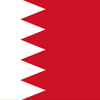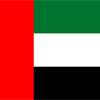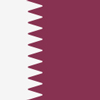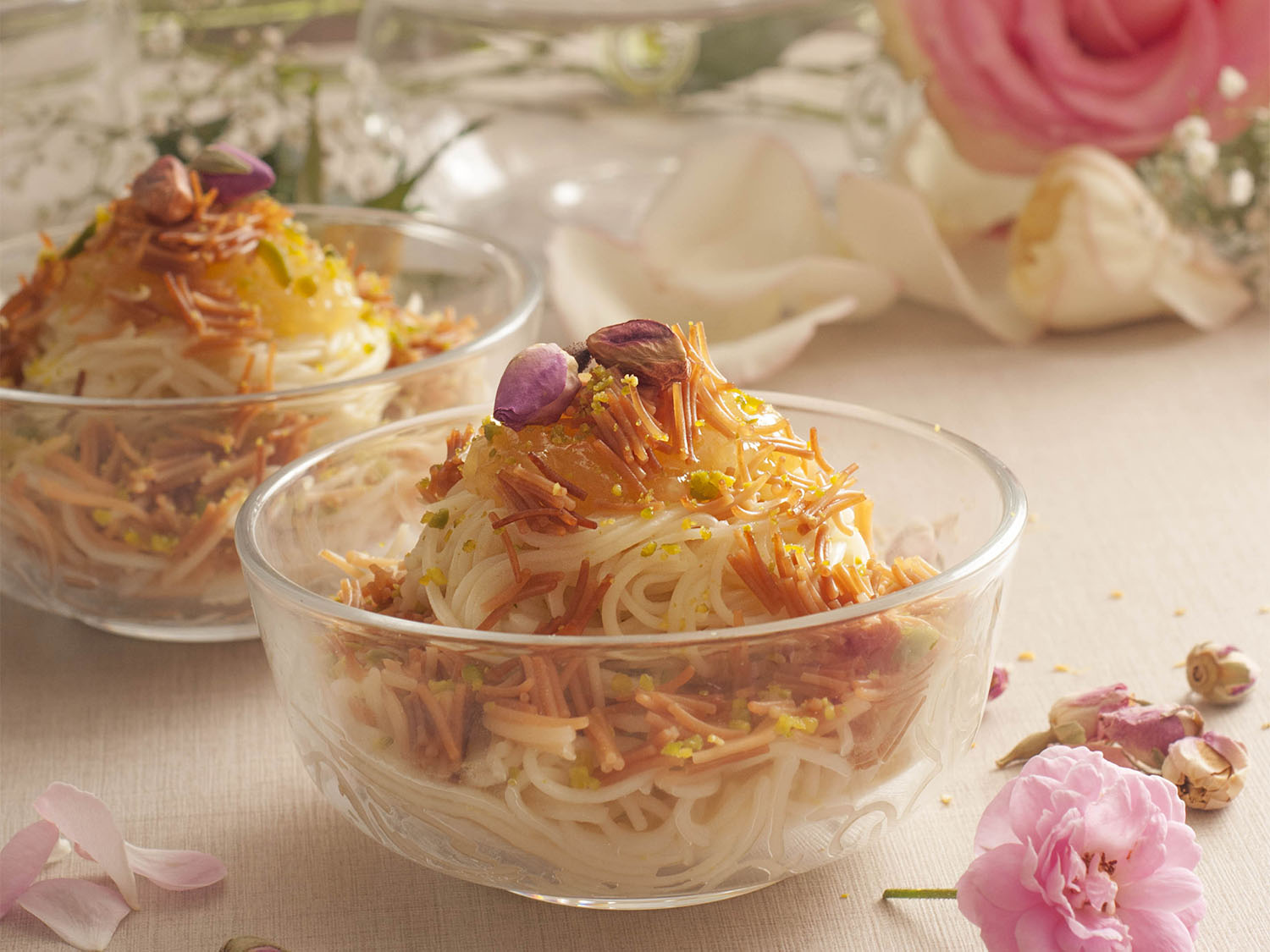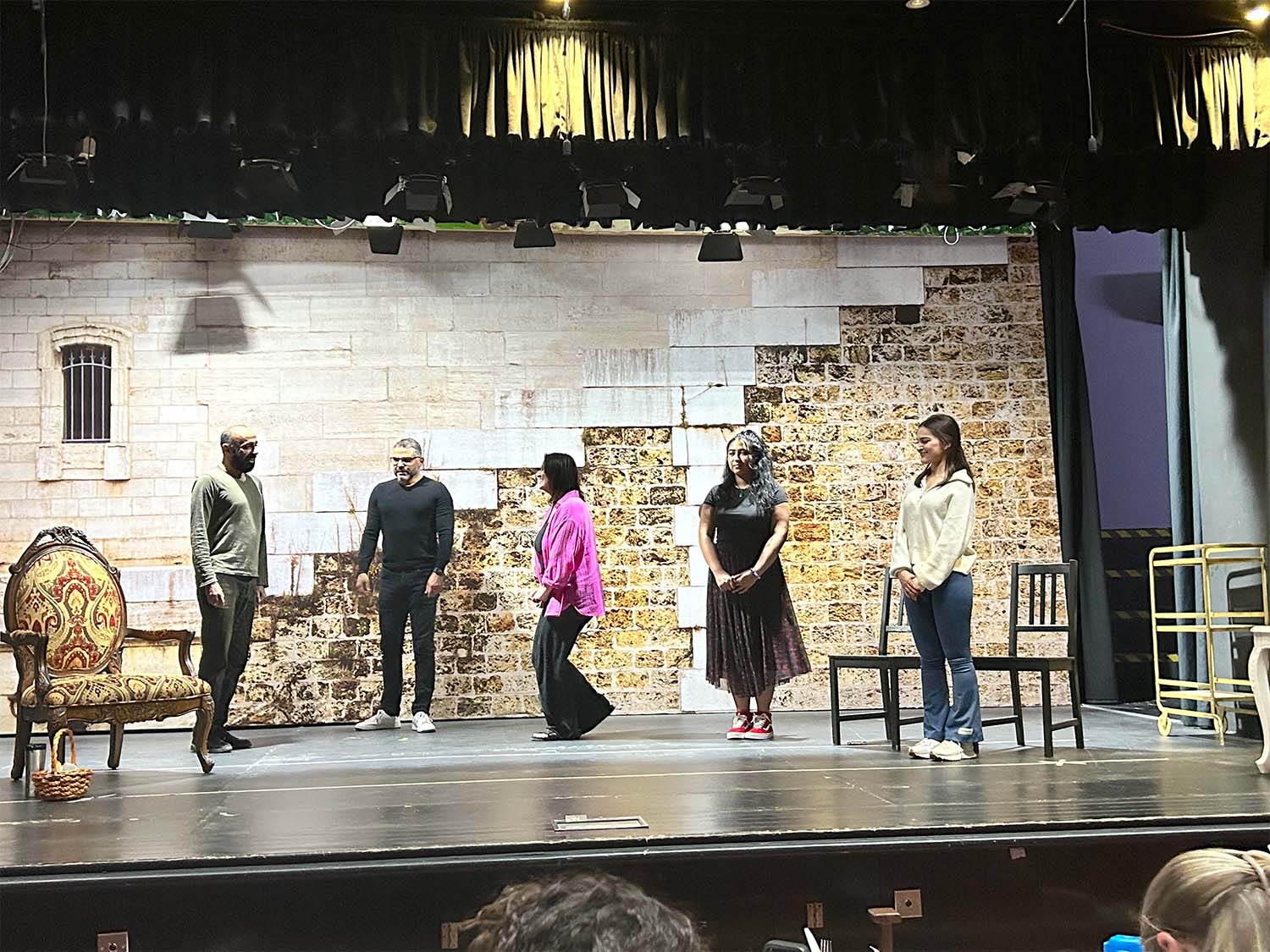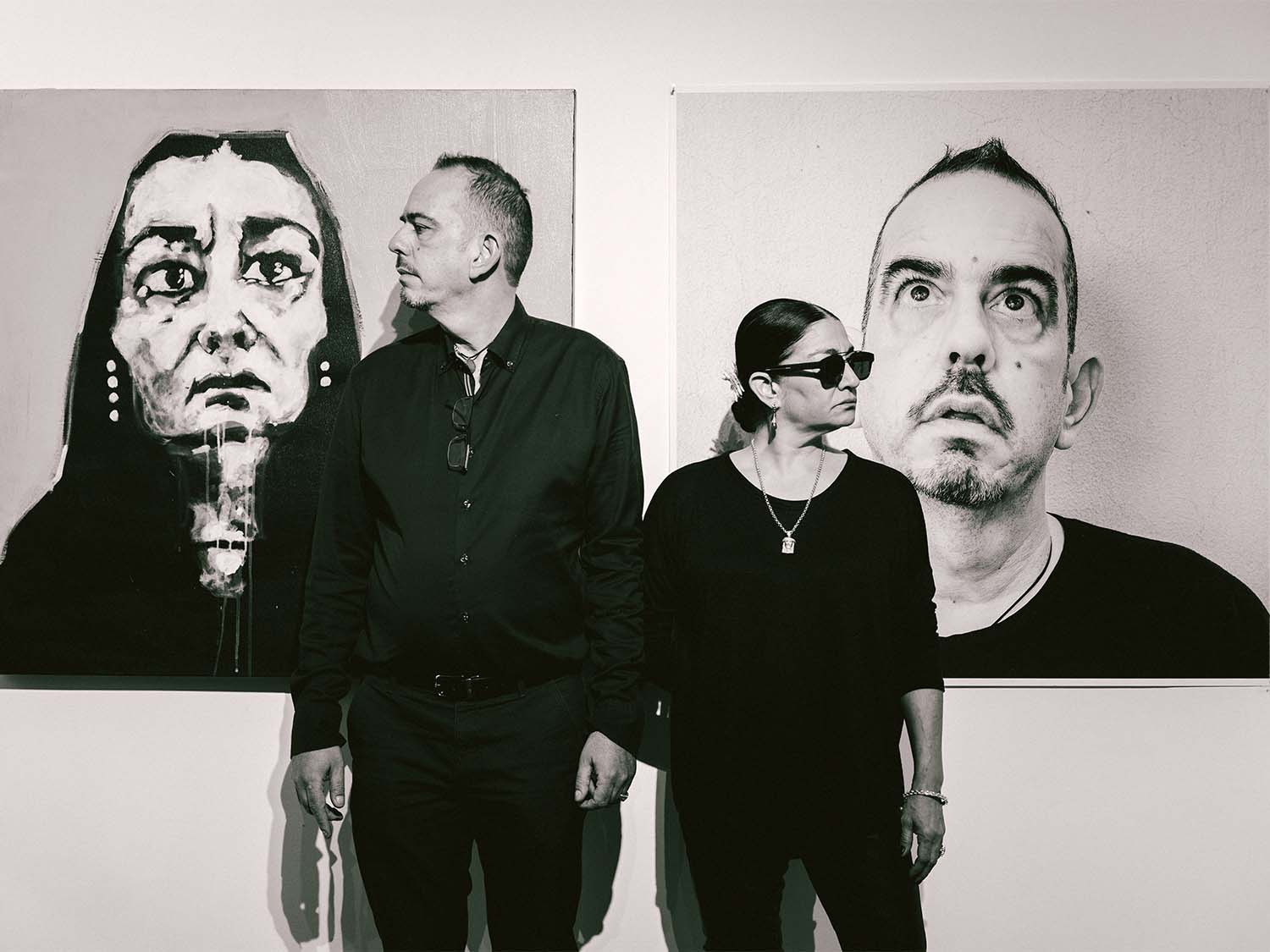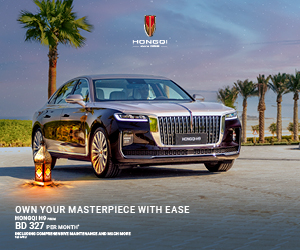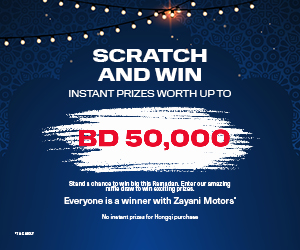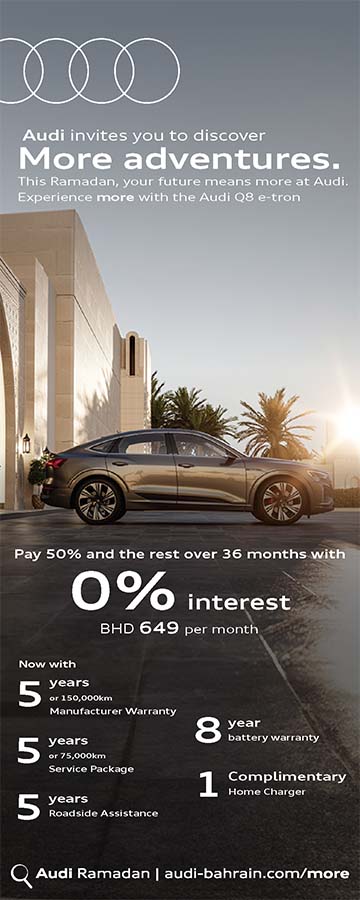FROM FINANCE TO FINE ART
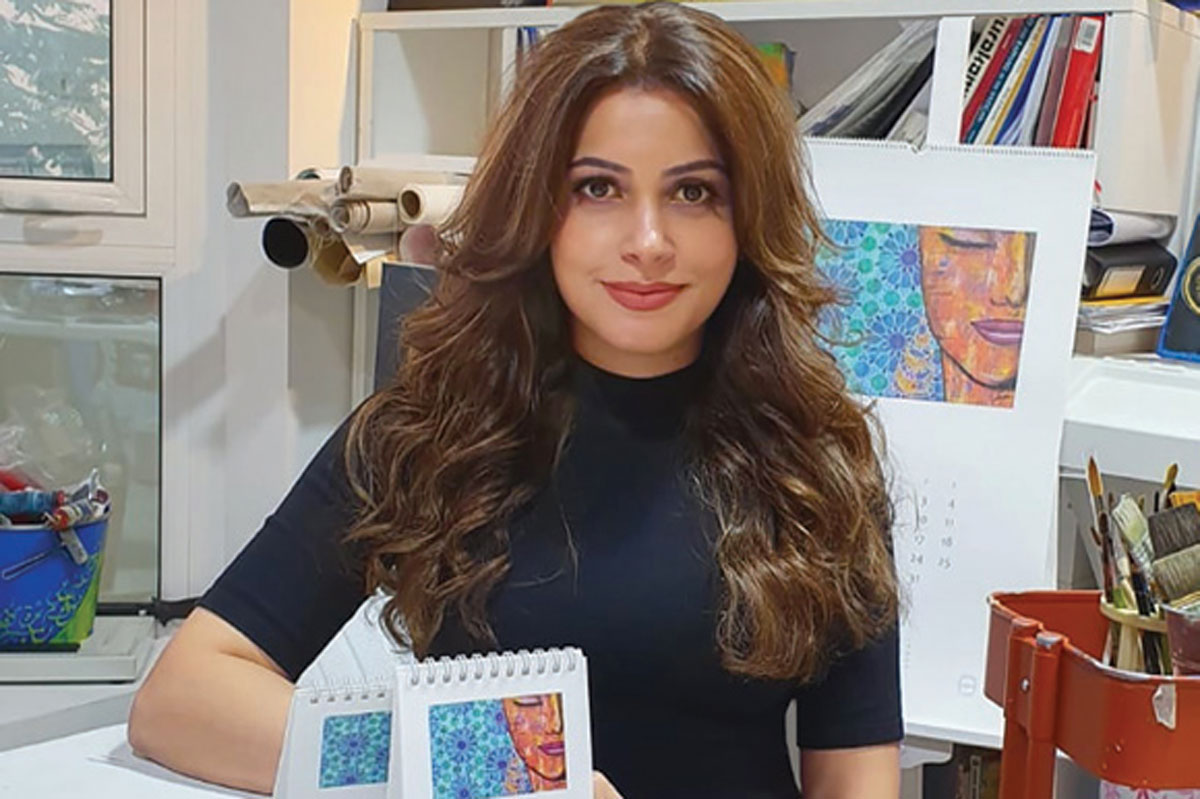
Leena Al Ayoobi explains her journey from hidden art to putting on a show for the world, in her own gallery
A Bahraini in her late 30s, Leena has been painting and sketching since childhood. But, with no early art education and the feeling that her style of painting might not be popular in her homeland, she was shy to put her work out there.
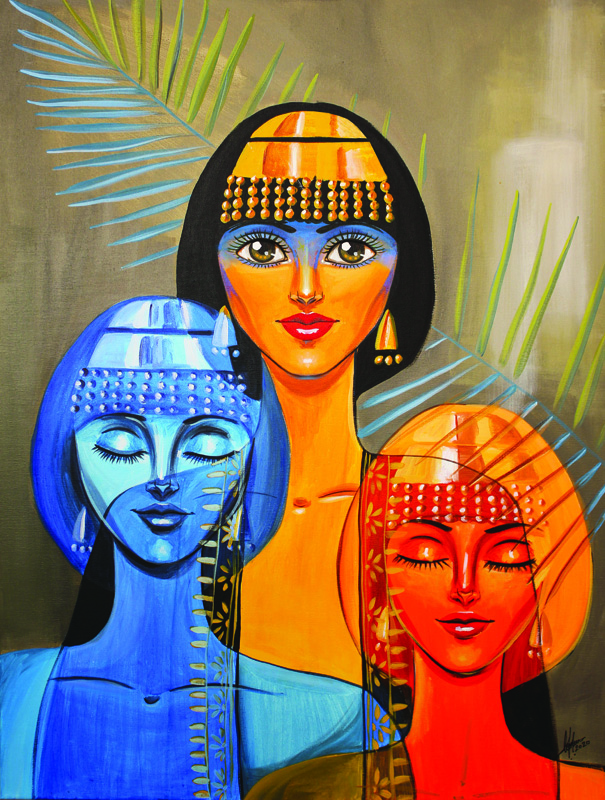
She says: “As a child, I was always drawing and sketching [children]. If I watched TV cartoons, especially Japanese because they have very detailed faces and figures, I would copy and interpret them.
“I didn’t have the chance to study art, so I had to do it all by myself from books and online. I then went on to Accademia Riaci in Florence and London Art College. I wanted a class on art history just to enhance my background. Then I had to come up with my own process.”
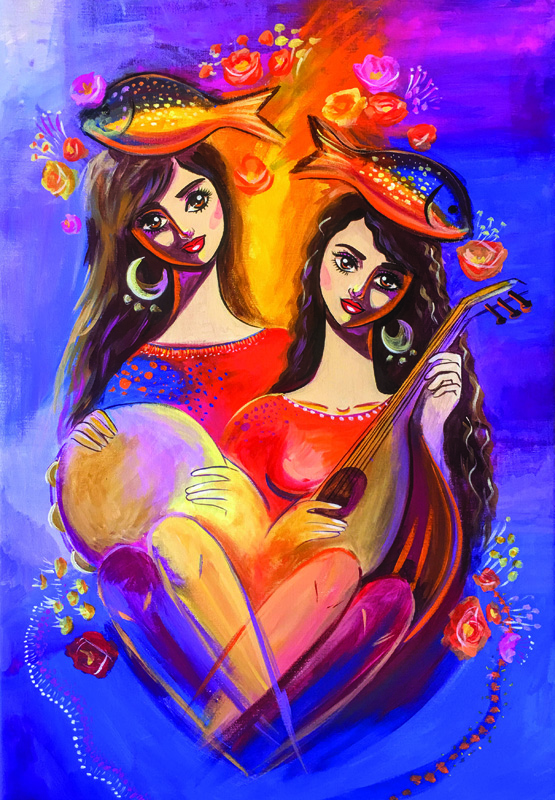
Leena spent 12 years in the corporate world as a senior business consultant with an international financial consultancy and various banks before she quit to focus on art. It was at a cancelled exhibition that her life changed for good.
“In 2014, I was due to participate in an art event in Manama – I can’t even recall the name, but it was Ministry of Culture and it was cancelled before it actually opened! Up to that point I had kept my work just for myself, I had never shown publicly. It was different to what you would normally see locally – our market, at that point, embraced a lot of abstract art and pictures of falcons!
“As we were setting up [before the cancellation], I got a lot of good feedback and I actually sold six pieces before the event was cancelled.
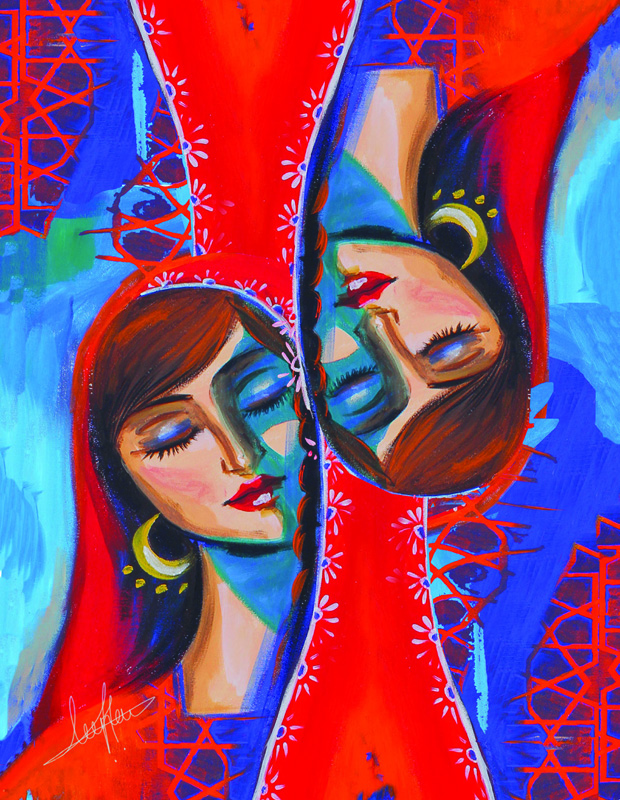
“They were old-style traditional pieces with a twist, for example Marilyn Monroe in Arabic clothes wearing a batoula [the metallic-looking mask sometimes worn by Arabic women as an accessory].
“I was also interviewed from just setting up, and it made me feel that there was potential to pursue art [as a career].”
Now, just over six years later, Leena has a studio at her home, a gallery, Dar Alfann, and shops in Manama and A’ali plus a shop-gallery space in Bahrain’s new airport. They carry around 600 different lines from paintings to clothing, furniture, notebooks and accessories bearing Leena’s artwork. And the airport space stocks a new line of travel inspired pieces such as suitcase covers and travel pillows. There you will also find the curated works of other Bahraini artists.
Leena has also participated in lots of collaborations such as producing a limited Bahrain Starbucks cup for National Day and, most recently, an eco-friendly reusable shopping bag that can be found in Alosra Supermarkets.
Post 2014, she had plenty of exposure with participation in exhibitions both in Bahrain and Dubai. She says social media makes it easier for artists to connect but adds: “I don’t feel that women in the Gulf are well represented in the art scene; when women are shown in art, I believe that they are not shown in the right way. By men and conservatives, they are confined to a certain way [portrayal]. For example, they are shown as hard working, but it doesn’t show women’s strength.
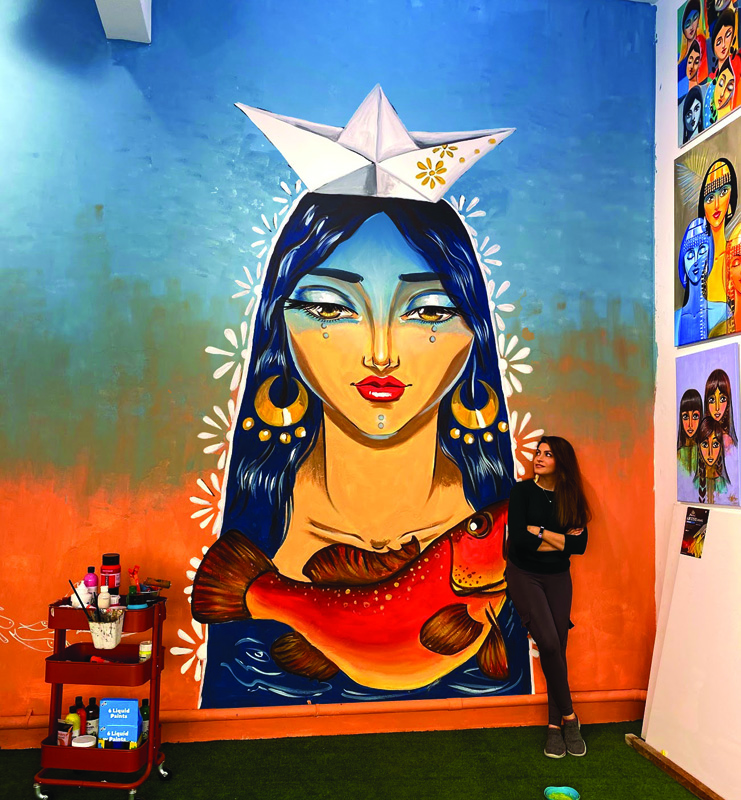
“I pretty much always paint women – I do animals and other things sometimes for fun, but I enjoy the subject of women more.” None of her pieces are based on people she knows but, rather, all come out of her head with inspiration maybe coming from her childhood. “I was a very dreamy kid. I always lived in my own space. I would spend the whole holidays drawing or painting,” she says.
Describing the works we’ve featured, Leena explains: “The painting with the fish and the ladies is a mix of the past and dreamscape in terms of what they’re wearing and the old houses.
“I don’t feel that women in the Gulf are well represented in the art scene…”
It’s a mix of so many things – childhood and dreams. “The two black haired women and the three together – they might look Egyptian in style but they’re not. The head pieces give their identity, we call it Gubgub in Bahrain [the jewelled headpiece]. It’s worn across the Gulf and is both traditional and modern. I’m trying to mix it up a bit to attract [and show] different age groups and colours. The three gold headdresses are the same as the Egyptian-looking ones.”
A common theme throughout Leena’s work is fish and this is a very specific and intentional thing. “I like to add fish into my paintings,” she says. “It brings good luck and here we are islanders, so it’s very symbolic. If someone comes [to you or your home] with a big fish, there’s a big greeting because it brings big luck. A lot of people believe that a painting of fish in your living space brings good luck too, so I am often trying to incorporate that.”
The big eyes pictures were created in 2017 and Leena adds: “I have progressed since then, I have adjusted things and focussed more and now it’s different each time.” She continues: “I think it [my art] has taken off because it’s totally different to what’s previously been available. People in Bahrain do love art, but they’re not fully exposed to it. Countries like Syria [pre-war] and Egypt have art museums and universities – we don’t have that here.
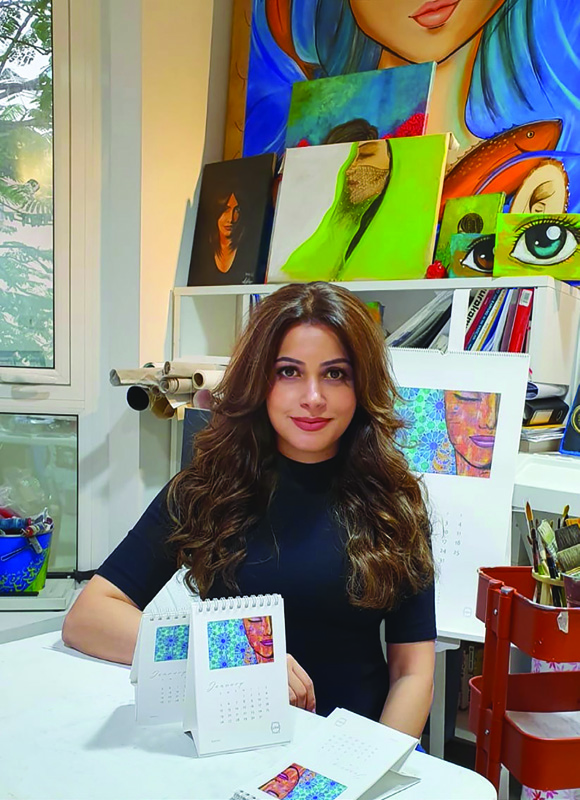
“I’ve also seen lots of people copying my style. There was noone and now there are many – there are court cases! “I see them everywhere, it’s exciting to see that I’m inspiring people, it’s a new thing for me. I feel it’s very simple to the eyes and people can easily understand it. I get a lot of students, interviewing for final papers, from both in and outside Bahrain. It’s really nice and it makes me want to do even more and more.”
For the future, Leena would like to showcase Dar Alfann, which translates as House of Art, to create shows like those you might see in New York or California. She is also planning private events, such as classes – low profile, safely distanced and very popular in the UK and US. And taking her fascination with female subjects even further, she concludes: “I want to focus on the subject of women and violence against women.” ✤

